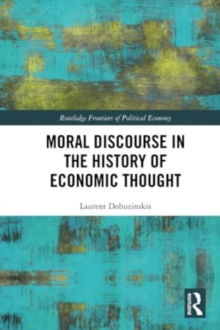
Political Pluralism, Disagreement and Justice : The Case for Polycentric Democracy Hardback
by Julian F. Muller
Part of the Routledge Frontiers of Political Economy series
Hardback
Description
This book poses the question: How can we organize society in such a way that our disagreement about facts and norms works to the benefit of everyone?
In response, it makes the argument for polycentric democracy, a political arrangement consisting of various political units that enjoy different degrees of independence. It is argued that to progress towards justice, we first need to change our attitude towards reasonable disagreement.
Theorists have always viewed reasonable disagreement as nuisance, if not as a threat.
However, this work puts forward that the diversity of perspectives which underlie reasonable disagreement should be viewed as a resource to be harvested rather than a threat to be tamed.
Resting on two key arguments, the author proposes the idea of polycentric democracy as the most capable method of making pluralism productive.
The book explores what such a political order might look like and concludes that only an institutional system which is capable of profiting from diversity, such as polycentric democracy, might reasonably be expected to generate an overlapping consensus.
Continuing in the tradition of Karl Popper and Friedrich August von Hayek, this book lies at the intersection of philosophy, political economy and political theory.
It will be of great interest to academics and scholars working in philosophy, politics and economics.
Information
-
Available to Order - This title is available to order, with delivery expected within 2 weeks
- Format:Hardback
- Pages:234 pages, 10 Tables, black and white; 1 Line drawings, black and white; 1 Illustrations, black and
- Publisher:Taylor & Francis Ltd
- Publication Date:29/05/2019
- Category:
- ISBN:9781138228962
Other Formats
- Paperback / softback from £32.99
- EPUB from £26.72
- PDF from £26.72
Information
-
Available to Order - This title is available to order, with delivery expected within 2 weeks
- Format:Hardback
- Pages:234 pages, 10 Tables, black and white; 1 Line drawings, black and white; 1 Illustrations, black and
- Publisher:Taylor & Francis Ltd
- Publication Date:29/05/2019
- Category:
- ISBN:9781138228962










